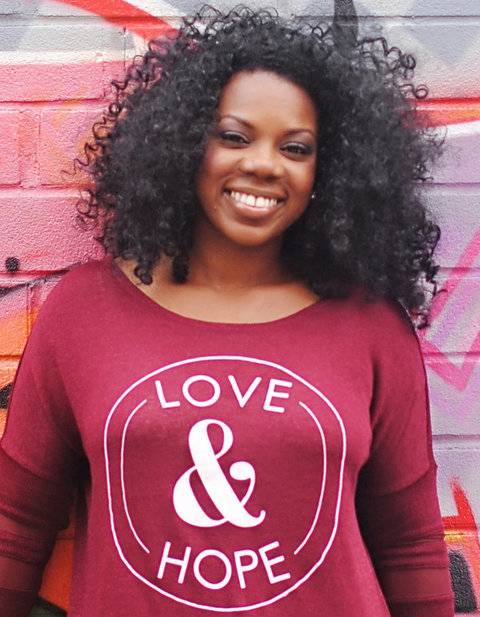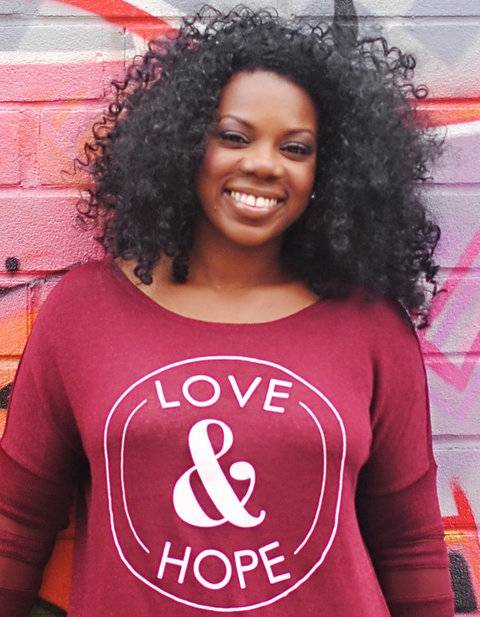 “I would never let someone hit me. I would leave.”
“I would never let someone hit me. I would leave.”
I hear people, some of them my good friends and family members, assert too often that they could never find themselves in any sort of abusive relationship. They simply wouldn’t allow it – as if anyone does. But somehow, in this supposedly socially progressive American society, this type of rhetoric and theory is still prevalent.
That claim is one of the most noxious forms of escapism. Beverly Gooden, creator of the #WhyIStayed global, social networking movement, spoke about variations on this specific statement as a form of victim blaming, among other issues integral to domestic abuse, when she spoke to a full audience at Allen Residence Hall in Urbana last Tuesday evening.
In regard to the question of who are the victims of domestic abuse, it is, undoubtedly imperative that we recognize that certain identities are at a markedly higher risk: black women, gay or bisexual men and women, and transgender individuals all experience unusually high rates of domestic violence. While men can be and are victims of this abuse, the phenomenon overwhelmingly affects women.
Given this information, we should be actively examining what societal ideologies and stereotypes result in such a disproportionally distributed rate of violence. But the reality, which we must embrace in order to eradicate escapism, is that domestic abuse could happen to anyone, regardless of disposition or identity. To assume otherwise is to lay the responsibility with the victims of domestic abuse.
Not only is that misgiving harmful to the psychological wellbeing of domestic violence victims, but it does nothing to resist the frequency of domestic violence. It, quite strangely, doesn’t castigate the primary aggressor.
In an email interview, Gooden spoke to this odd circumvention in how society typically understands domestic abuse:
“We look for equity in regards to violence, in an attempt to both understand violence and escape the reality that it could happen to us.”
The just world fallacy, a theory to which Gooden also spoke, assists in this misperception. We’d like to believe that bad things happen to bad people, and to bad people only. That way we, the good people, can expect a blissful life. Well, let’s move beyond these unseemly meritocratic and illogical tendencies.
The passive language in the too commonly used phrase, “let someone hit me” is part of the issue even on the lexical level. That phrasing incorrectly suggests that the grammatical and social agency lies with the one who is hit, rather than the other way around.
It would certainly be nice to know that you will never be a victim of domestic abuse, in any capacity, including physical, emotional, psychological, sexual, and financial abuse. Too many people seem to be indulging in that fantasy to the point at which it becomes their perception of reality.
Instead, we should recognize that, because absolutely anyone is at risk for domestic abuse, that we need to prepare for that ugly possibility at a micro and macro degree. Gooden addressed the importance of keeping up with one another and recognizing the signs of an abusive relationship.
“First we can check on one another. Friends, family, neighbors, all of the people around us. Second, we can confront the issue in our own lives and the lives of those around us.”
It’s additionally essential that we address domestic abuse in a broader degree; we need to examine why this violence occurs with such immense frequency and force – even here, in Champaign-Urbana. Domestic violence has become an epidemic; one in four women today will likely experience this abuse in their lifetime. The Champaign and Urbana police stations together receive about 2,800 calls regarding domestic violence a year, while that number doesn’t indicate the number of arrests made, the statistic is staggering.
In towns with a college, this problem is even more amplified, as 21 percent of college students will likely experience dating violence by a current partner; 32 percent of college students will experience it by a previous partner.
Let’s approach this issue with the appropriate weight.
Gooden stated that a large part of addressing domestic violence, as a societal characteristic, is garnering the appropriate awareness.
“We can make the issue something we are constantly aware of and speaking out about. We don’t talk about it as much as we should, considering we all know someone who has experienced [domestic violence].”
If you or anyone you know is involved in an abusive relationship, you should speak out and seek help. But we should be moving beyond just that recommendation in our attempt to eliminate domestic violence.
We must address and hypothesize why an aggressor hits a victim; we need to do away with the wholly inaccurate rhetoric that asks why a victim “lets” him or herself be hit.
(Photo of Beverly Gooden by The New York Times)








